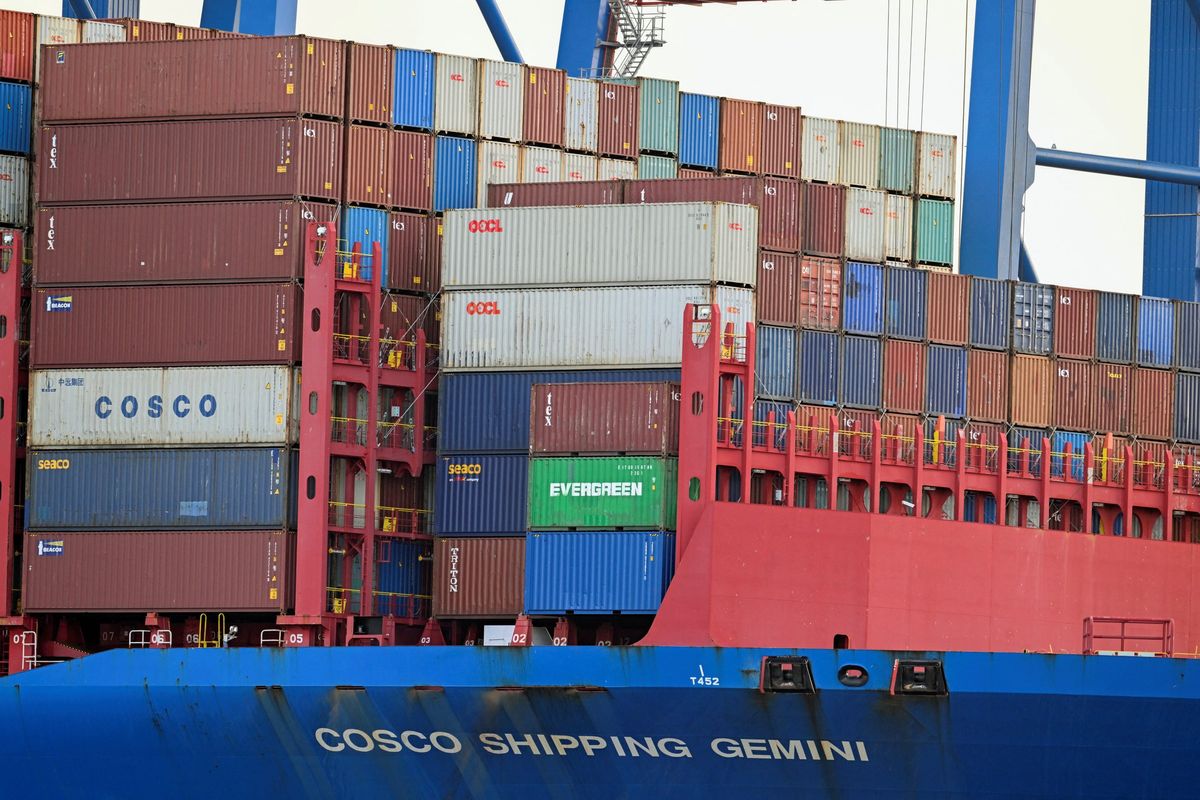Germany approves Chinese shipping company Cosco to buy stake in its Hamburg port

A few minutes every morning is all you need.
Stay up to date on the world's Headlines and Human Stories. It's fun, it's factual, it's fluff-free.
Last year, Chinese shipping giant Cosco made a bid to purchase a stake in some terminals at Germany’s largest shipping port in Hamburg. But, officials have been divided over the deal and worried about becoming too reliant on China, its largest trading partner. Some German coalitions and the European Commission also opposed the deal as a potential national security risk. Cosco has been buying up European port assets – it owns an Athens port, a controlling stake in a Belgian port and stakes in Antwerp and Rotterdam.
On Wednesday, Chancellor Olaf Scholz’s administration approved a compromised version of the deal, with Cosco getting a reduced stake of 24.9% instead of the 35% it had planned. This doesn’t give the company any voting or management rights.
Some support the deal, and others are against it. Chinese Foreign Ministry spokesman Wang Wenbin thinks the acquisition is mutually beneficial for China and Germany. On the other hand, the German economy ministry said the stake reduction was an “emergency solution” to keep Cosco’s ownership at a pure investment level – though most still wanted to ban the deal altogether.
It is not the first time Germany has depended on a powerful country, as it’s been heavily reliant on Russia’s energy imports. Fast forward to today, and Germany is facing repercussions of its energy policy with a gas shortage triggered by Russia cutting off supplies.
Key comments
“For Scholz, the port of Hamburg may be an economic project; for Beijing, a stake in Europe’s third-largest port is another piece of the puzzle in Xi Jinping’s geopolitical power game,” said Frank Müller-Rosentritt, a member of the German Parliament Bundestag’s Foreign Affairs Committee. “While we are debating if and how much control we might be willing to sell to China, a German participation in a Chinese harbor would unequivocally be blocked by Beijing. If they fear German involvement in their critical infrastructure, should we not be mortified by Chinese involvement in ours?”
“We have made strategic errors in the past with the sale of infrastructures to China,” said French President Emmanuel Macron at an EU leaders meeting earlier this week.
“Cooperation should be mutually beneficial,” said Chinese Foreign Ministry spokesperson Wang Wenbin. “We hope the relevant party will see practical cooperation between China and Germany in a rational manner and stop unwarrantedly hyping the issue.”
“We appreciate that a solution has been found in objective and constructive talks with the federal government,” said Angela Titzrath, chairwoman of terminal owner Hamburger Hafen und Logistik AG’s executive board.




Comments ()